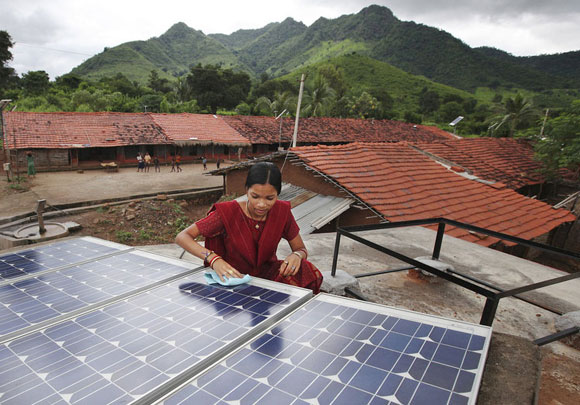The anti-dumping dispute between Indian solar manufacturers and foreign panel importers is taking a serious turn with both parties making strong arguments to support their claims.
While Indian solar manufacturers unanimously agree that cheap solar imports will hamper the growth of the domestic solar industry, project developers and EPC contractors favor Chinese and U.S imports as they claim Indian manufacturers are not able to meet their quality and quantity requirements, apart from being more expensive.
Indian solar panel manufacturers, especially those in the budding state, are facing tremendous challenges due to competition from foreign players. Most of them import components from countries like China, where they pay import duties. Solar manufacturing cost in India is much higher compared to China due to infrastructural and economic challenges. In the present scenario very few players like TataBP, Moser Baer and Indo Solar are able to foresee a future in the Indian market.
Over the past several months, domestic manufacturers have bore the brunt of solar imports from companies like First Solar, Trina Solar and Suntech. Indian players were almost eliminated from the big projects, according to the clams of Indian manufacturers.
There is a widespread belief among customers that Indian manufacturing industry cannot match the price competitiveness and technological advantage of international manufacturers including the U.S and China. Experts say that even if the import duties were increased, Indian manufacturers would remain uncompetitive – their current business models are to blame.
M. Jayaraj, director, Agency for Non-Conventional Energy and Rural Technology (ANERT), says the government should encourage indigenous manufacturing of solar panels as it will benefit the country in the long run. There should be a lot more investment in R&D and the government should encourage participation of more local manufacturers in the process through subsidies to customers.
Siva Rama Krishnan E, MD and CEO at GreenBell Sustainable Energy, one of the solar panel suppliers in Kerala, recently told Greentech Lead that local manufacturers, especially the new companies, are not able to compete in the market mainly because they find it difficult to get empanelled by the Ministry of New and Renewable Energy (MNRE), India.
To be part of any government project, solar manufacturers in India need to be empanelled in the MNRE. The process, according to Rama Krishnan, is tedious and tough for a novice player even if its products meet IEC standards. At present the entire process of empanelment takes about 6 months to one year. A number of criteria are taken into consideration including technical skills, financial status of the company, track record, orders in hand, and more. Only the established few are able to make into the list, so the rest of the companies face survival issues.
According to Rama Krishnan, government should accept IEC as the criteria for selecting a solar panel maker involving more Indian companies in those projects so that customers get more options to choose from the market. This will help end the monopoly of the established players in the market and encourage more companies to enter the competition.
Imported solar cells have been nuisance not only to Indian manufacturers but also to customers. Many Chinese panels are simply “dumped” into India, and there is no way to benchmark their quality at customer end, says Rama Krishnan. Warranty and post-installation services are also an issue with foreign imports.
Solar panels are a huge investment for a home, and so customers expect regular maintenance and warranty for the products. Most foreign panels include 25 years warranty; but for a customer getting a service from a company that is located abroad is not easy. However, many customers have implemented Chinese panels simply because they are offered at a better rate.
Greentech Lead’s view: By imposing a reasonable import tax on foreign products, the Government can ensure that only competitive products land in India. This will also bring price parity with Indian-made solar cells and foster a healthy competition between foreign and Indian makers. It will gradually bring the cost of solar products down in the next few years.
Rajani Baburajan

